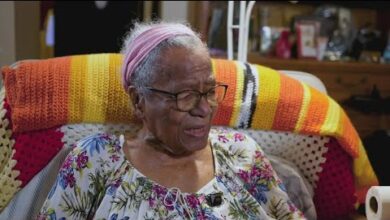Nurses practicing primarily in care homes ‘improve end-of-life care’

Nurses and other clinicians who specialise in working in care homes represent an important resource when it comes to improving the quality of end-of-life care for residents, a large US study suggests.
Researchers found nurse practitioners working mostly in care homes may decrease the likelihood of residents experiencing stressful hospital admissions and improve the quality of life in their last days.
“We clearly see fewer [doctors] working in nursing homes while nurse practitioners and physician assistants are increasing”
Hye-Young Jung
They said that, during the past two decades, the proportion of clinicians, such as nurse practitioners, who practiced primarily in nursing homes had increased at a “rapid pace” in the US.
But it was unclear whether the use of such specialists improved the quality of end-of-life care for nursing home residents, said the study authors from the Weill Cornell Medicine research unit.
Writing in the journal JAMA Network Open, they highlighted that residents at the end of life frequently experience burdensome admissions, reflecting poor quality of care.
The physical act of admitting residents to hospitals increased their risk of delirium and discomfort, and interrupted communication and continuity of care, said the researchers from New York.
Hospital admission also increased the risk of feeding tube use, intensive care unit stays, late enrolment in a hospice, and receipt of care that was not concordant with their wishes, they said.
Their large-scale study, the first of its kind, examined how specialists uniquely impacted on the care of nursing home residents in their last 90 days, compared with those cared for by other clinicians.
The study defined specialists as healthcare professionals – including doctors, nurse practitioners and physician assistants – who provided at least 80% of their patient visits in the nursing home setting.
The study involved data on two million nursing home residents aged 65 and older, covering a period from January 2012 to December 2019. It found specialists managed about 46% of the cohort.
The researchers concluded that care from a specialist decreased the risk by up to 6% for admissions due to any reason including pneumonia, urinary tract infection, dehydration or sepsis.
They said their study suggested that “burdensome transitions” at the end of life among nursing home residents were “frequent and may be reduced through care” provided by specialists.
The findings highlighted the “potential” of nursing home specialists to improve the quality of end-of-life care for “this vulnerable and medically complex population”.
Lead study author Dr Arnab Ghosh, assistant professor of medicine at Weill Cornell Medicine, said: “The literature has described certain features or outcomes that translate into what we think is poor quality at the end of life.
“One example is transferring residents to the hospital and admitting them for conditions like pneumonia or UTIs that may have been managed in the nursing home, or going from nursing home to hospital to another nursing home.”
The researchers also noted that most of the growth among US clinicians focusing on nursing homes care stemmed from advanced practitioners, such as nurses, rather than doctors.
They said training, and “specifically” in end-of-life care, should be given to healthcare professionals, “particularly” nurse practitioners and physician assistants, who practice in the nursing home setting.
Study author Dr Hye-Young Jung, associate professor of population health sciences at Weill Cornell, also flagged the “differential growth” among different types of clinicians in nursing home settings.
“We need more research comparing the quality of care from different nursing home clinicians including medical doctors, nurse practitioners and physician assistants,” she said.
“But we clearly see fewer [doctors] working in nursing homes while nurse practitioners and physician assistants are increasing,” she added.







